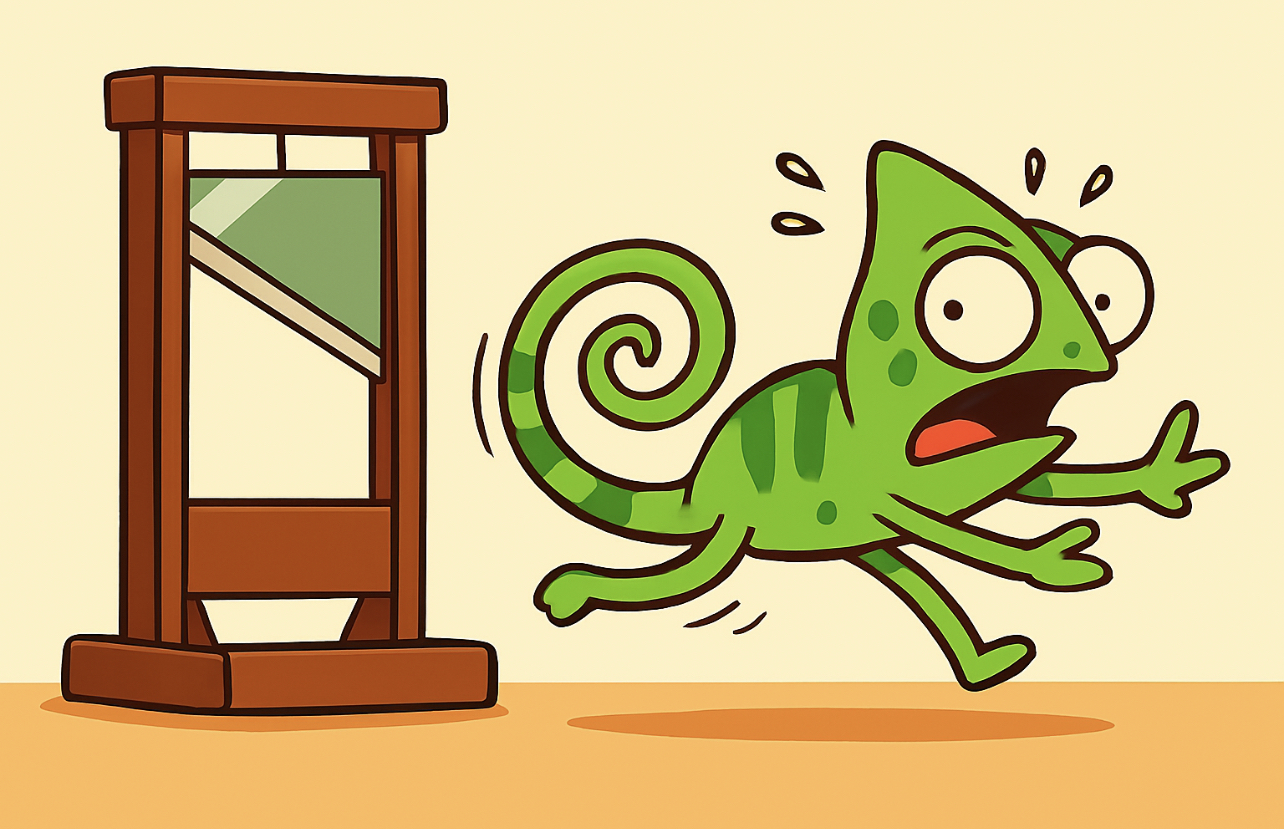Myth 71: “When a Chameleon Is Sick, It Should Be Euthanized”

This question arises in only two legitimate situations:
The animal is injured, severely ill, and suffering intense pain—or is already in a state of agony.
The animal is dying naturally, without signs of distress.
In the second case, nature has equipped the organism with mechanisms to prevent suffering.
No intervention is necessary.
Simply switch off the lights and allow the chameleon to pass peacefully and with dignity.
In the first case, however, the following principles apply:
A. It must be unequivocally determined that euthanasia is the only humane option.
Most keepers, I'm sorry to say, are not competent to make this judgment—they lack biological, veterinary, and medical training, as well as relevant experience.
B. Action must be taken swiftly to prevent prolonged suffering.
C. If there is a realistic chance—within one to two hours—of professional intervention by a qualified exotic veterinarian, this option must be pursued without delay.
D. If veterinary care is unavailable, the fastest layperson method is decapitation.
This is extremely difficult for most keepers to perform, either psychologically or physically.
E. If decapitation is not possible, there exists one extreme and exceptional alternative: the use of cold and freezing.
This method must follow a strict protocol:
First, cool the animal (e.g., place it in a box in the lower part of the refrigerator for two hours). This slows biological processes to a minimum and dulls pain perception.
Only then proceed with freezing, which will result in death.
Three conclusions I urge every keeper to remember:
1. ACT RESPONSIBLY. Provide the best possible care so the animal lives a long, healthy, and dignified life—and dies a natural death.
2. DO NOT PLAY GOD OR EXPERT. Seek qualified help whenever even remotely possible.
3. IN EXTREME CASES, ACT SWIFTLY AND WITH RESPECT FOR THE ANIMAL.